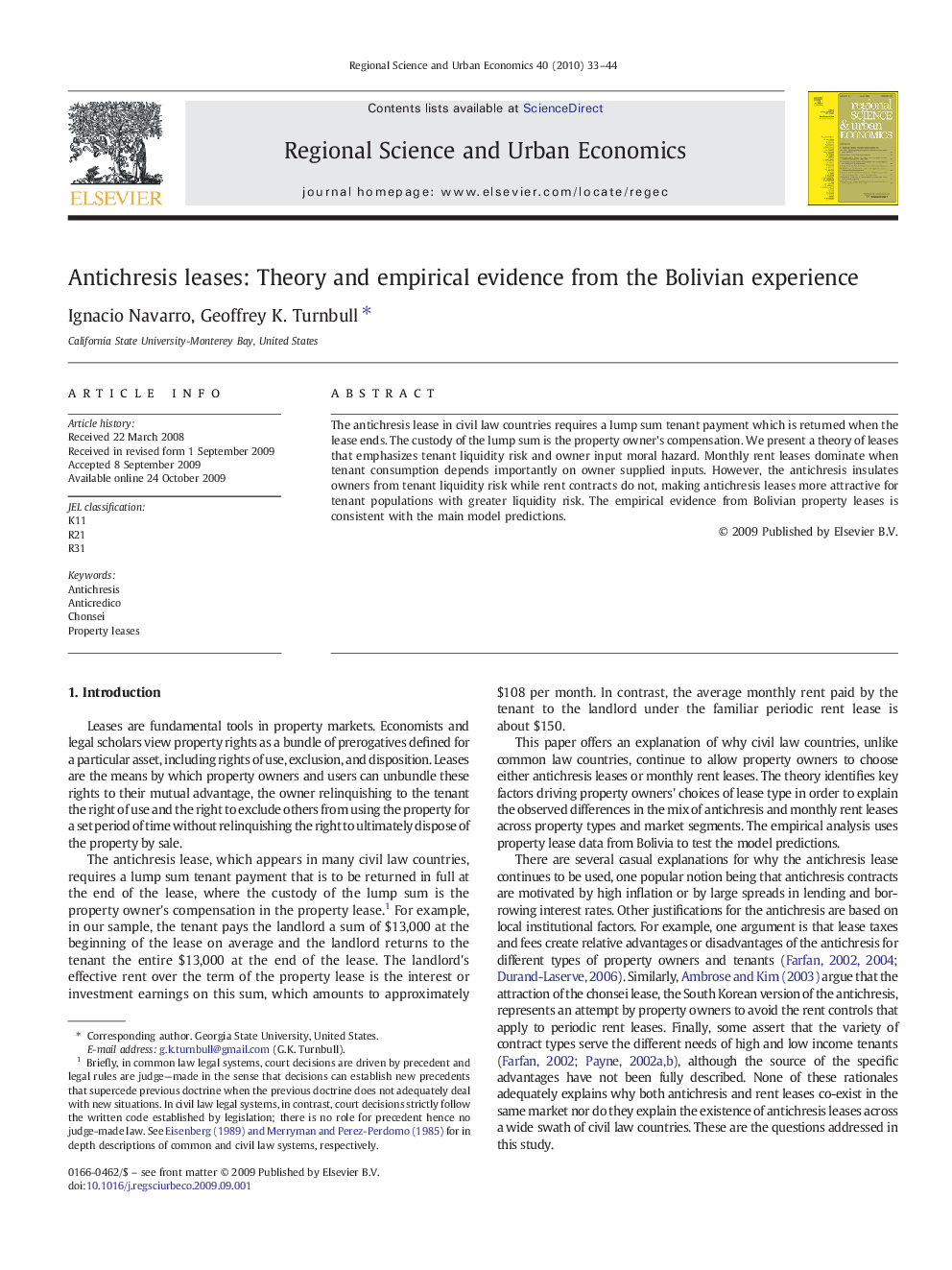| Article ID | Journal | Published Year | Pages | File Type |
|---|---|---|---|---|
| 983835 | Regional Science and Urban Economics | 2010 | 12 Pages |
Abstract
The antichresis lease in civil law countries requires a lump sum tenant payment which is returned when the lease ends. The custody of the lump sum is the property owner's compensation. We present a theory of leases that emphasizes tenant liquidity risk and owner input moral hazard. Monthly rent leases dominate when tenant consumption depends importantly on owner supplied inputs. However, the antichresis insulates owners from tenant liquidity risk while rent contracts do not, making antichresis leases more attractive for tenant populations with greater liquidity risk. The empirical evidence from Bolivian property leases is consistent with the main model predictions.
Related Topics
Social Sciences and Humanities
Economics, Econometrics and Finance
Economics and Econometrics
Authors
Ignacio Navarro, Geoffrey K. Turnbull,
